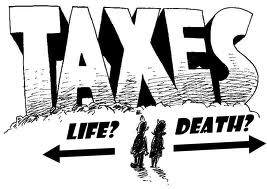 The days of estate duty may be numbered according to Nicolene Schoeman of Schoeman Attorneys and an article by Barry Ger, Cape Town-based tax consultant, in the May issue of De Rebus, the SA attorneys’ journal published by the Law Society of South Africa (LSSA). His opinion is echoed by several other media reports. In fact, many people’s hopes that this tax was finally on its way out rose significantly during this year’s budget speech.
The days of estate duty may be numbered according to Nicolene Schoeman of Schoeman Attorneys and an article by Barry Ger, Cape Town-based tax consultant, in the May issue of De Rebus, the SA attorneys’ journal published by the Law Society of South Africa (LSSA). His opinion is echoed by several other media reports. In fact, many people’s hopes that this tax was finally on its way out rose significantly during this year’s budget speech.
Estate duty: brief background
Imposed in terms of the Estate Duty Act 45 of 1955 as amended, estate duty is a tax levied at 20%. It is payable in respect of all property (and property deemed to be property) held by a deceased person at the date of his or her death.
In respect of property deemed to be property, the law denotes that even property not actually held by the deceased at death – in other words: some insurance policies – are also deemed to be included in his or her estate as part of the dutiable amount on which the tax is raised.
The tax is subject to a R3 500 000.00 exemption or abatement, which can be increased to R7 000 000.00 if the deceased person was predeceased by a spouse who did not use their abatement.
Ironically, writes Ger, wealthy people are reluctant to pay this tax even with their substantial means. They often engage in expensive and elaborate ownership structures to avoid it. As a result, estate duty contributes a relatively small amount of revenue to the fiscus through SARS and the costs involved in collecting estate duty are high.
Ger also states that he thinks this is the reason behind proposals to abolish the tax. Estate duty presents a number of other problems. For example:
- Assets owned by a deceased person in an offshore jurisdiction could be subject to local estate duty as well as any other duty imposed in the foreign country
- Assets that form part of the dutiable estate compromise income or assets already subjected to income tax during the deceased person’s lifetime
- Worst of all, estate duty overlaps in many ways with capital gains tax (CGT).
For these reasons, the fiscus is considering a new inheritance tax that is common to some other jurisdictions. Alternatively, it will make certain amendments to the CGT provisions. These are still rather unclear and, at this point, amount to little more than speculation.
Therefore, clients are urged to consult suitably qualified attorneys for advice on appropriate estate planning strategies and updates on any relevant developments.
Please take note that it is of the utmost importance that any estate planning strategy is implemented with a legally valid and updated will.



